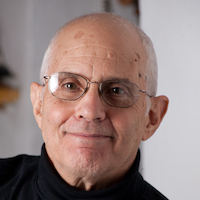The post-Exodus genocide no one mentions.
Once again, the annual rite of Passover is bringing to millions of minds one of the Western world’s most sacred and powerful stories.
It is not just Jews who are moved by the tale of Moses leading the Hebrews out of slavery, but also Christians and Muslims and even secularists, who (sans miracles) have drawn upon the story in movements against various forms of oppression, including America’s own civil rights struggles.
Whether one views it as actual history, or as part-history-part-mythology, or as a symbolically rich work of imagination, the Exodus saga evokes the human instinct to escape from bondage, whether physical or psychological; it inspires hope for achieving liberation; and, for the religious, it describes a particular kind of interaction between the human and the divine. For all those reasons and more, it has been a world-shaping archetype.
But we seldom hear what the later broadcaster Paul Harvey called “the rest of the story.” At a time when religiously motivated terrorism is a daily concern, it might do us well to contemplate the sequel.
When the Exodus story is told in homes, synagogues and churches, it is rendered with a neat beginning, middle and end: the enslaved underdogs, led by a heroic figure and aided by supernatural forces, overcome impossible odds and arrive at their prophesied homeland. Making the climax as poignant as it is satisfying, their aging leader, Moses, dies before he can enter the Promised Land with his people.
What happens next we have kept in the closet. Do we imagine that the Hebrews went to Milk and Honey Real Estate to purchase a parcel of land? Did they scope out some choice properties and offer the owners market value? No, they invaded. They conquered. They pillaged.
Driven by what they regarded as God’s promise, they crossed the river Jordan and laid waste to Jericho. As described in the Book of Joshua, “The army advanced on the city, every man straight ahead, and took it. Under the ban they destroyed everything in the city; they put everyone to the sword, men and women, young and old, and also cattle, sheep, and asses.”
In the aftermath, the Bible informs us, God tells Joshua,
“I deliver the king of Ai into your hands, him and his people, his city and his country. Deal with Ai and her king as you dealt with Jericho and her king.” And so he does. “The number who were killed that day, men and women, was twelve thousand, the whole population of Ai.”
There is no sweetening the barbarism. Nor does it stop there. In a series of massacres that would take Jerry Bruckheimer or Mel Gibson a full miniseries to depict, Joshua takes on other tribes, and “he left no survivor, destroying everything that drew breath.” Nor is there any denying that the invaders, like today’s suicide bombers, believed they were acting not only with God’s blessing but on his direct orders. Those who stood in their way “were annihilated without mercy and utterly destroyed, as the Lord had commanded Moses.”
It is understandable that parents and religious leaders would choose to end the story before the bloody denouement, just as schoolteachers used to depict the westward march of American settlers without the inconvenience of slaughtered Indians. But it does not serve us well to forget that disturbing chapter of biblical history, or to deny it. Not when jihad is in the forefront of our minds. Not when certain Christian and Jewish leaders use passages from the Koran to back their claim that Islam is, by its nature, a violent religion.
Every religion points to the light, and every religion has a shadow. It is tempting to ignore it, but what we keep in the dark has a way of poisoning our psyches like undigested toxins. It might be healthier to expose the shameful elements of the Judeo-Christian heritage, whether the imperial conquests of the ancient Hebrews, or the Inquisition, or other atrocities large and small. If Jews and Christians can be honest about the dark side of their religions, they might inspire peace-loving Muslims, no doubt the majority, to be honest about theirs. Then, perhaps, we will be better equipped to stand on common ground in the light.
Like elephant spirituality on Facebook.
Ed: Kate Bartolotta

 Share on bsky
Share on bsky






Read 5 comments and reply